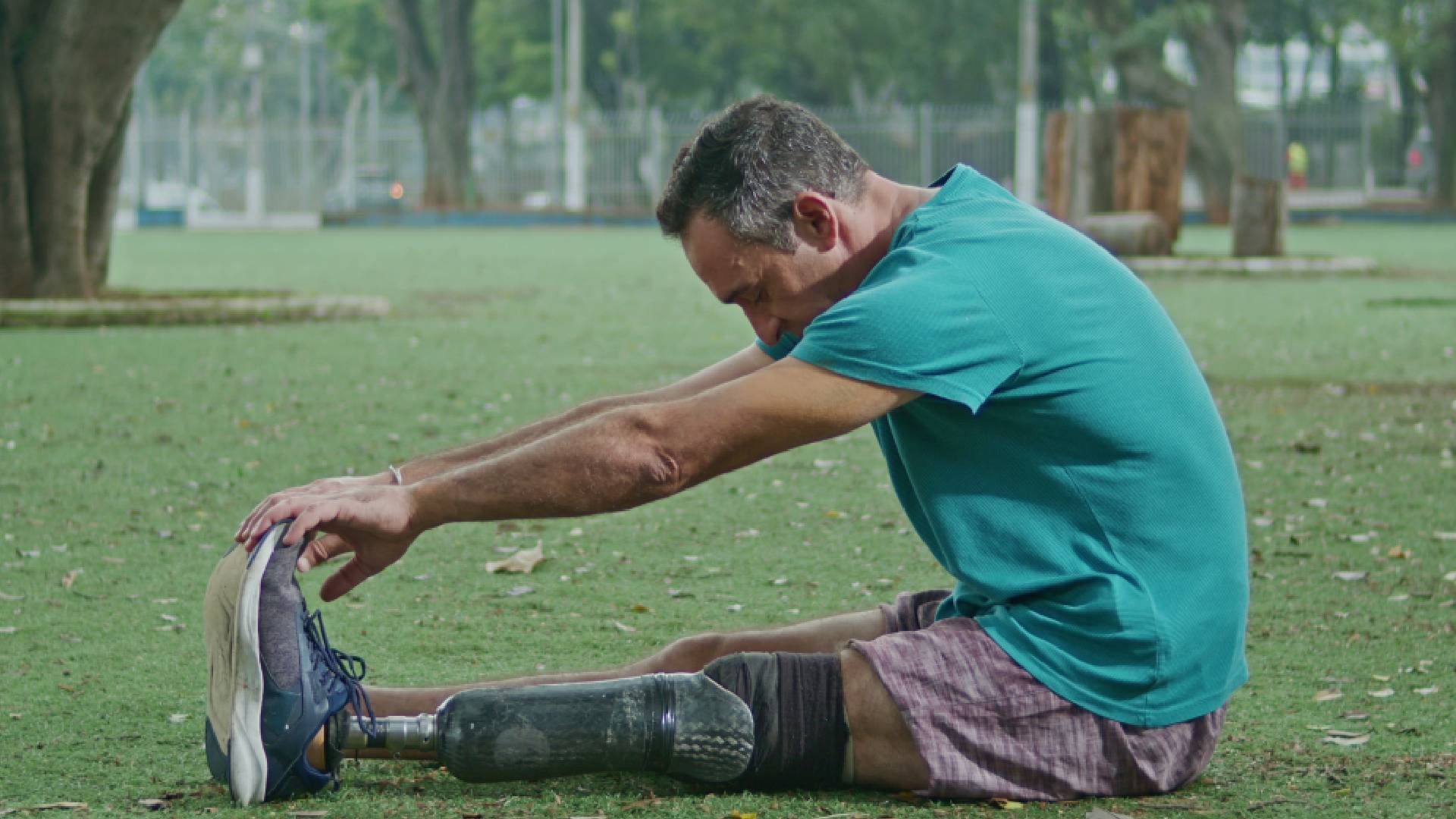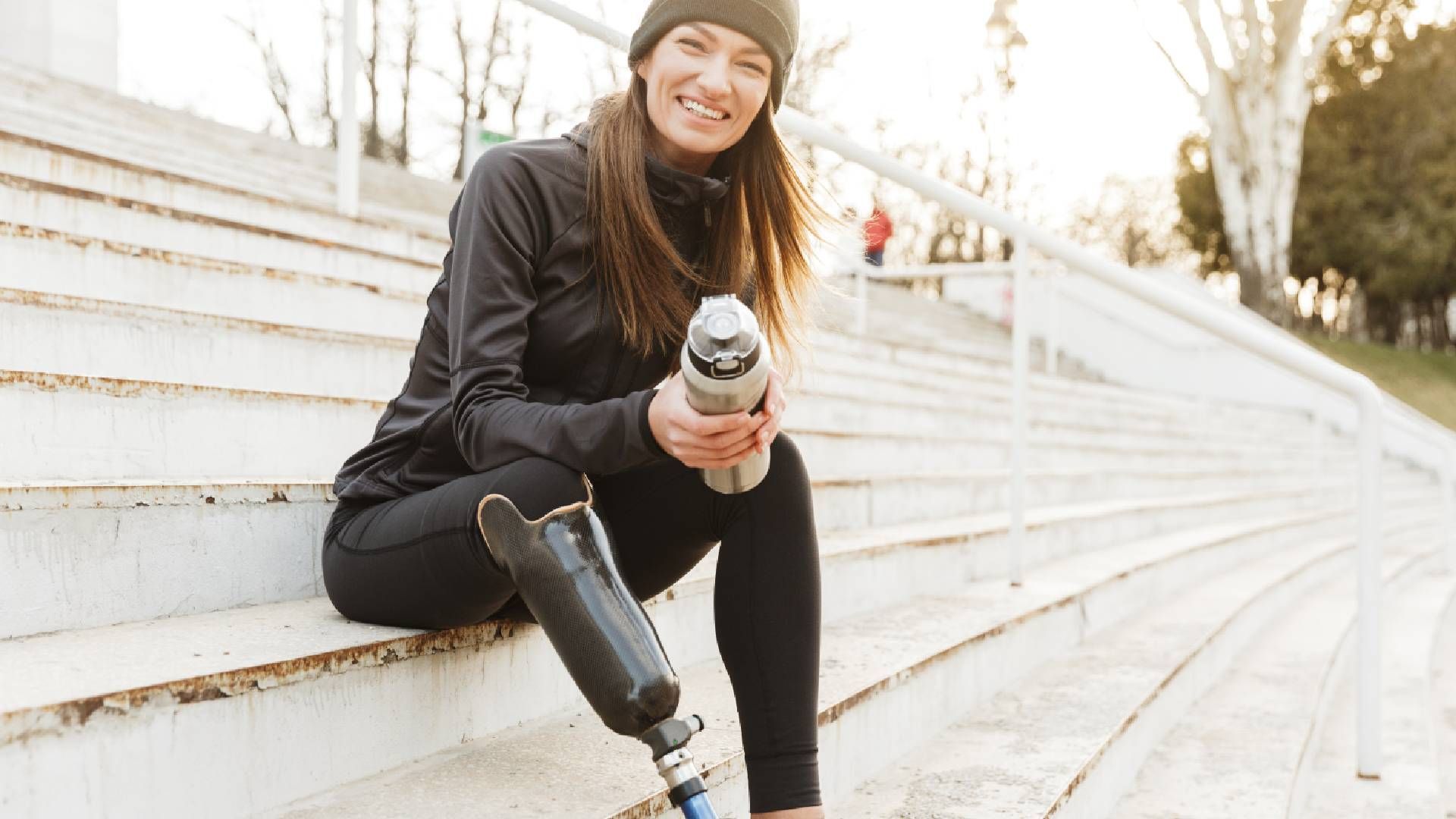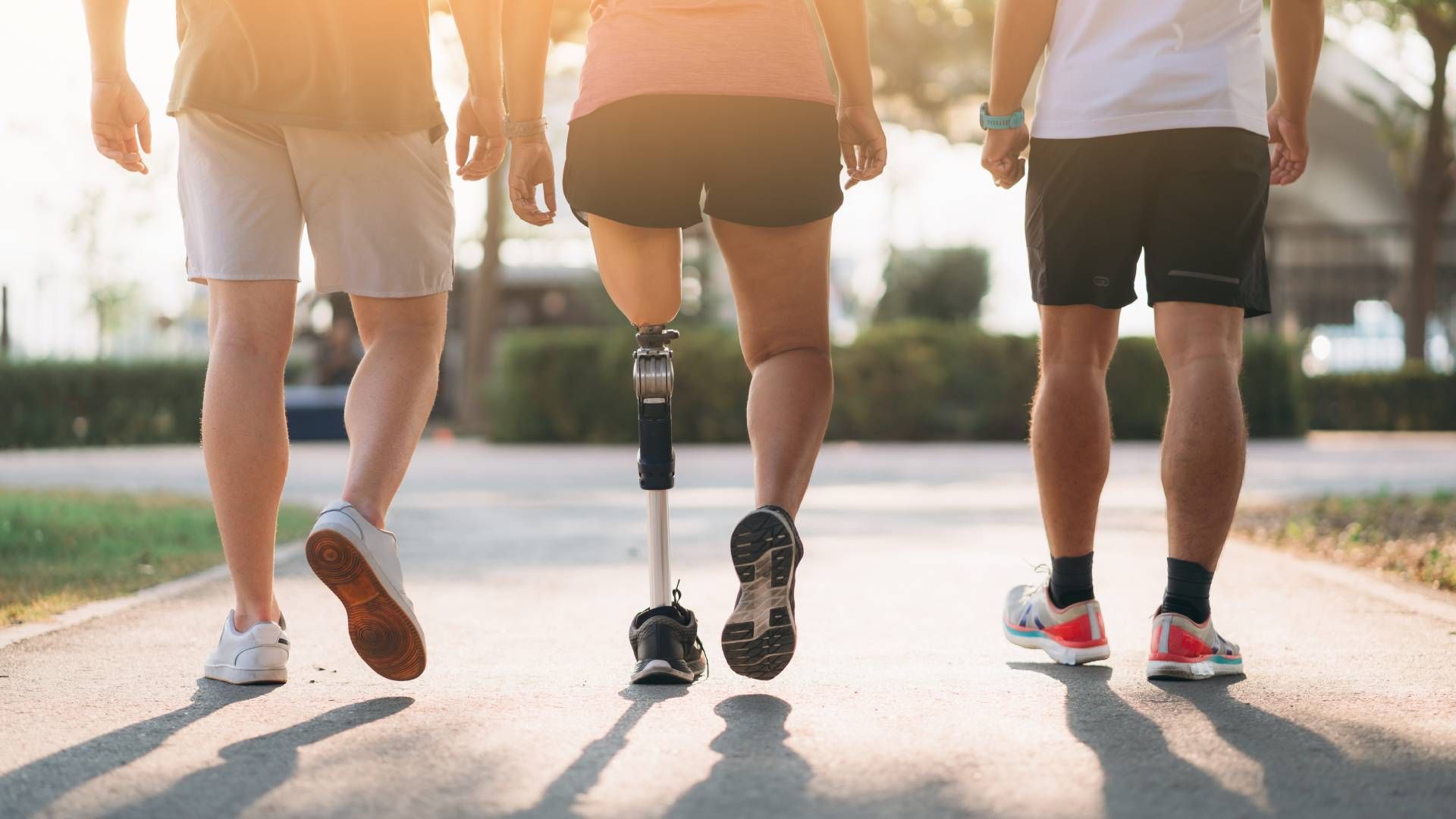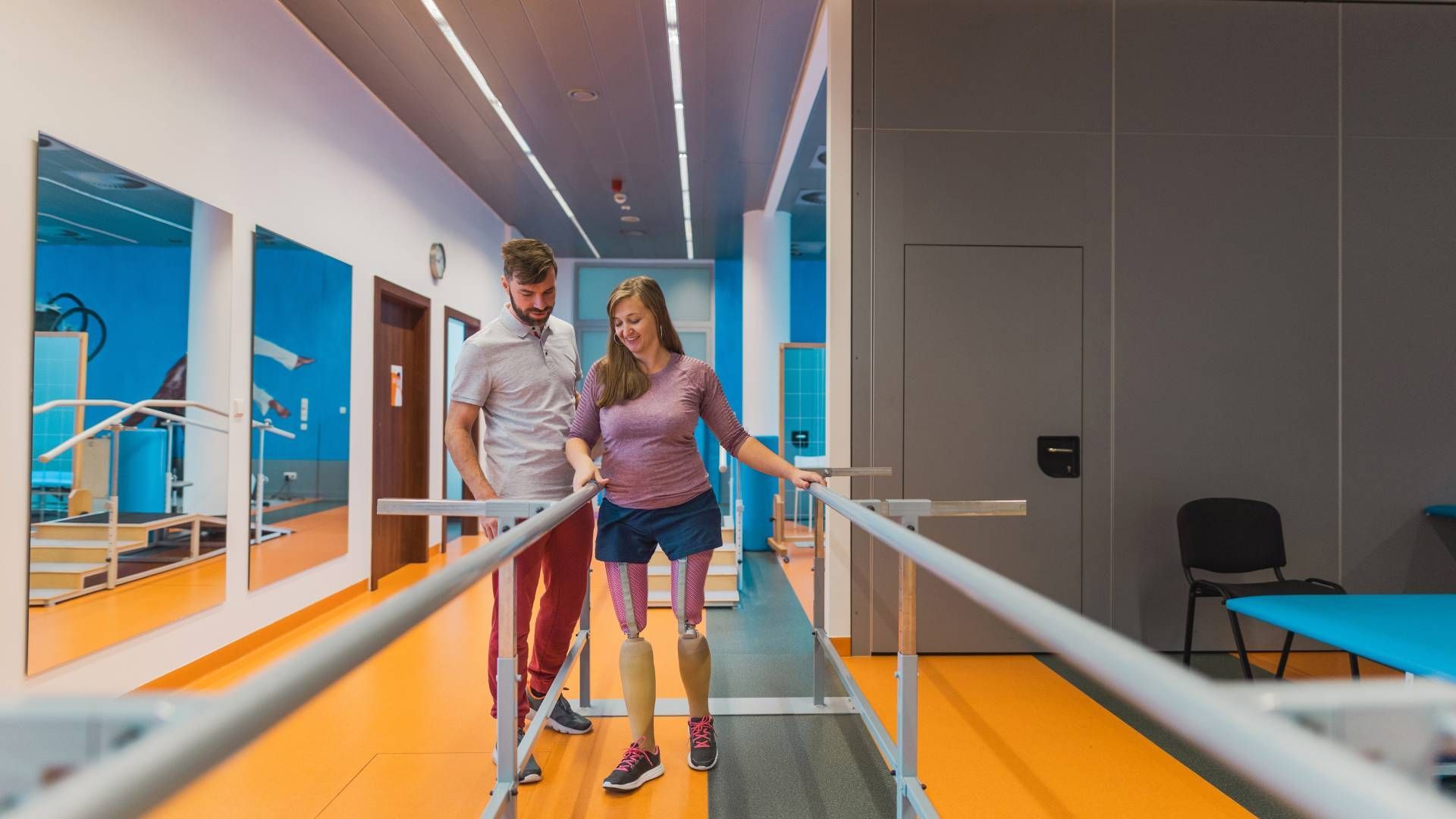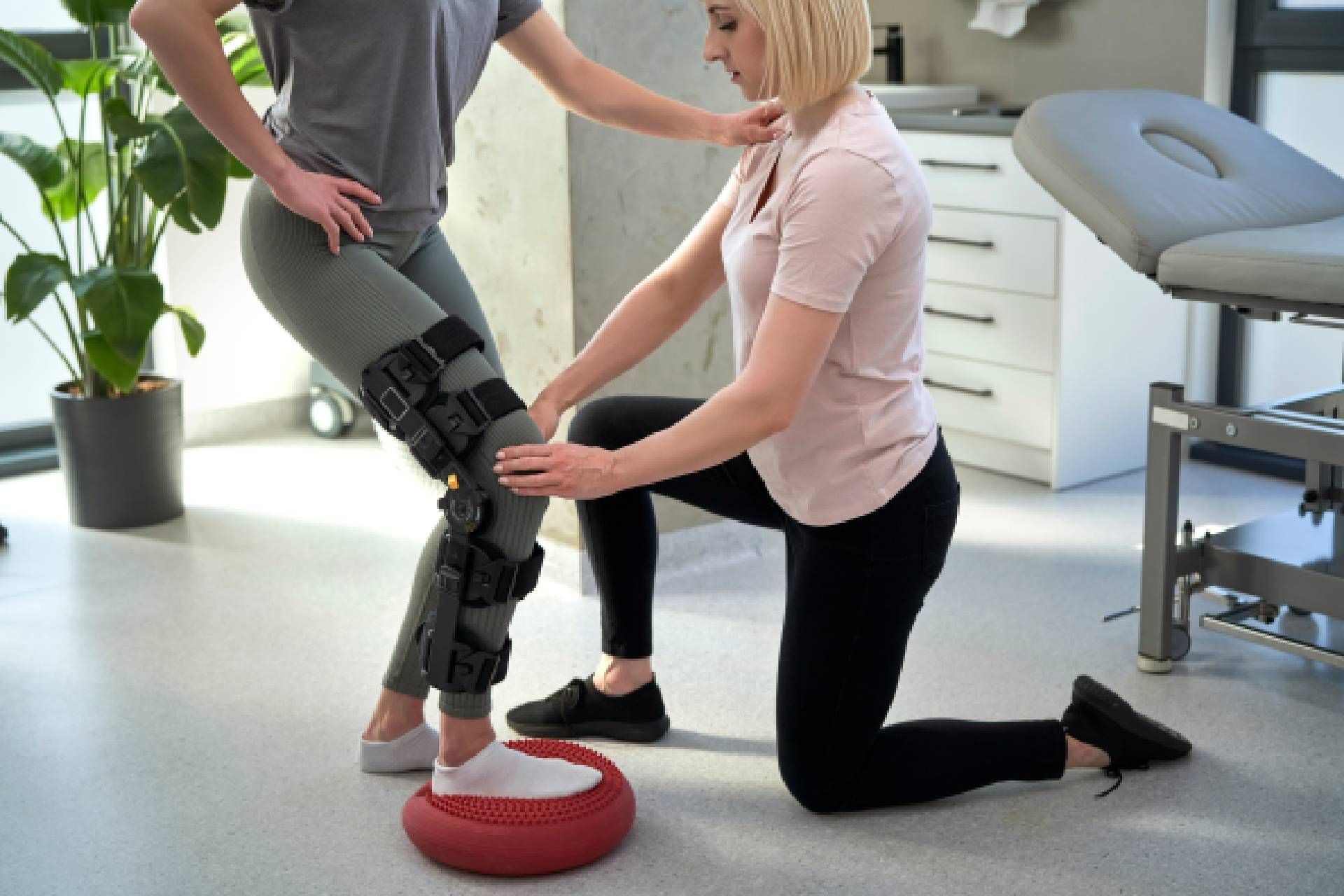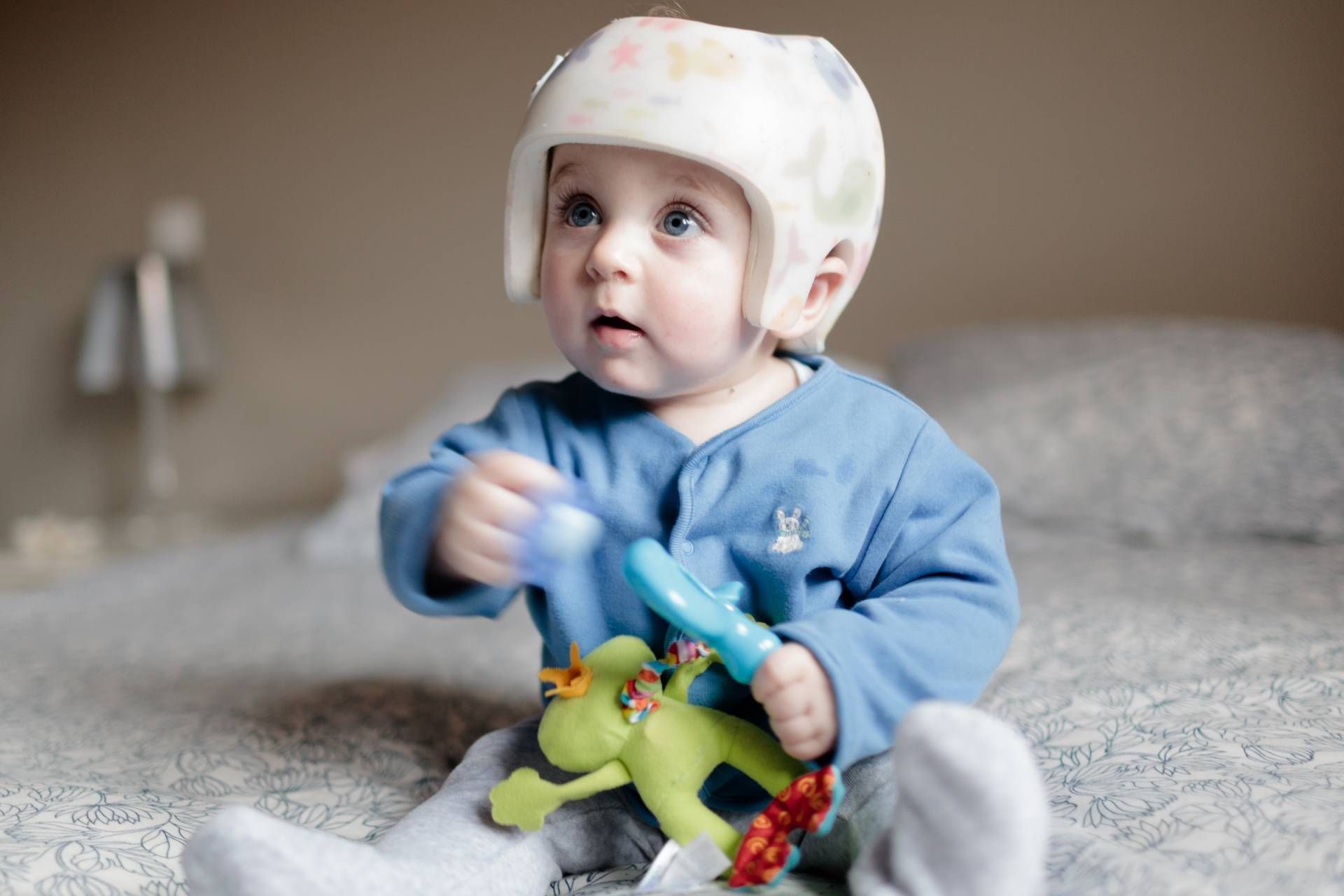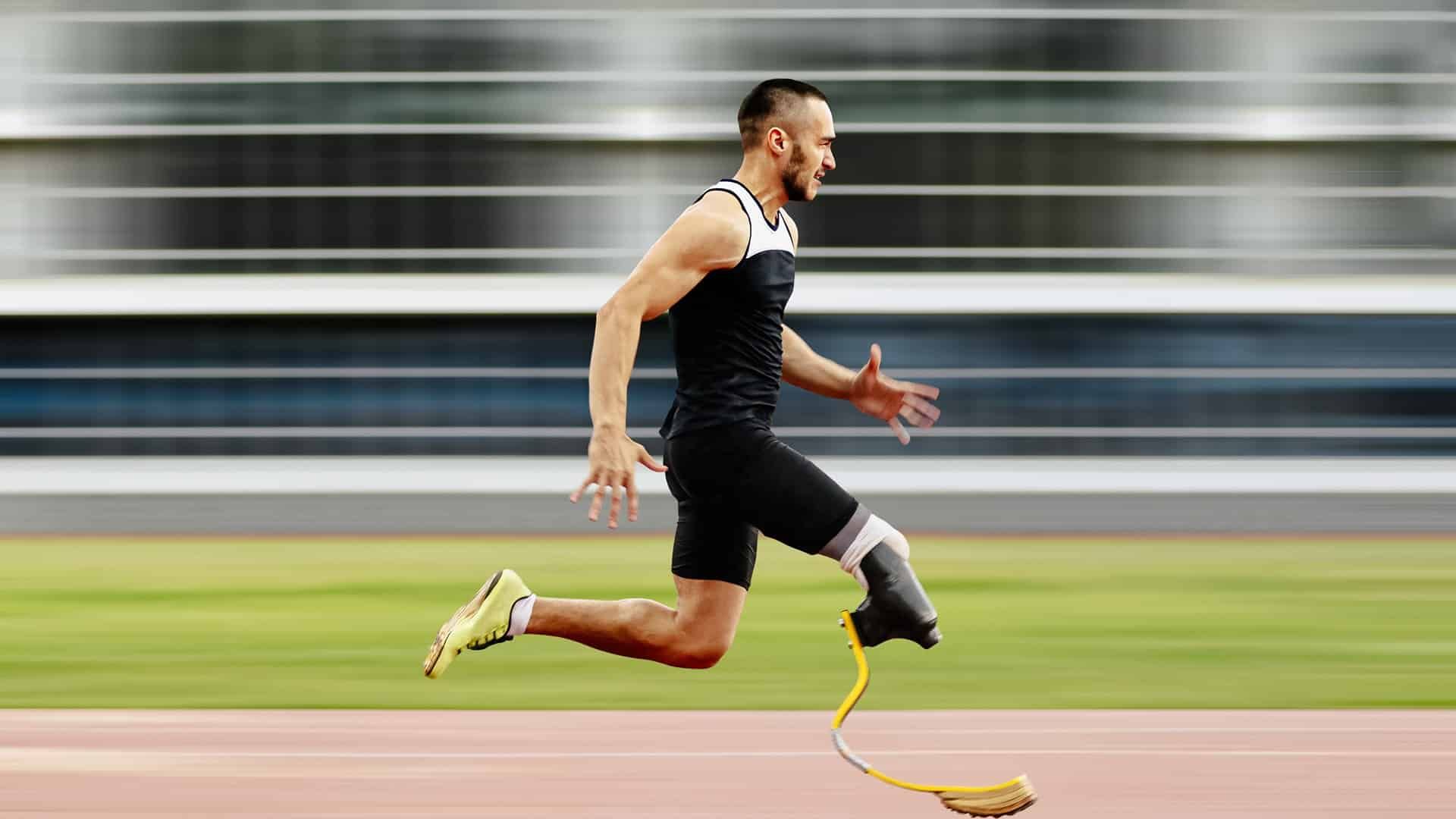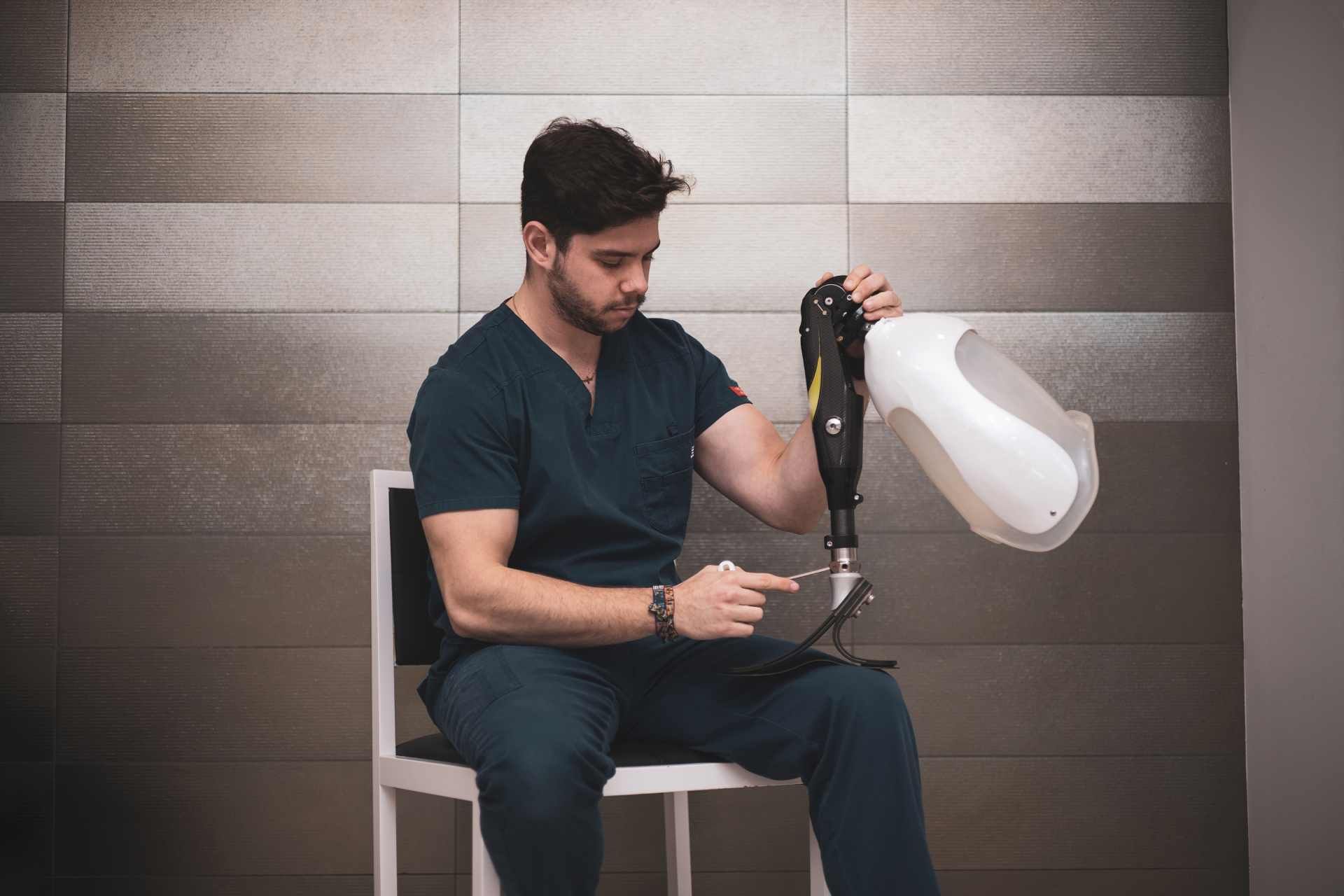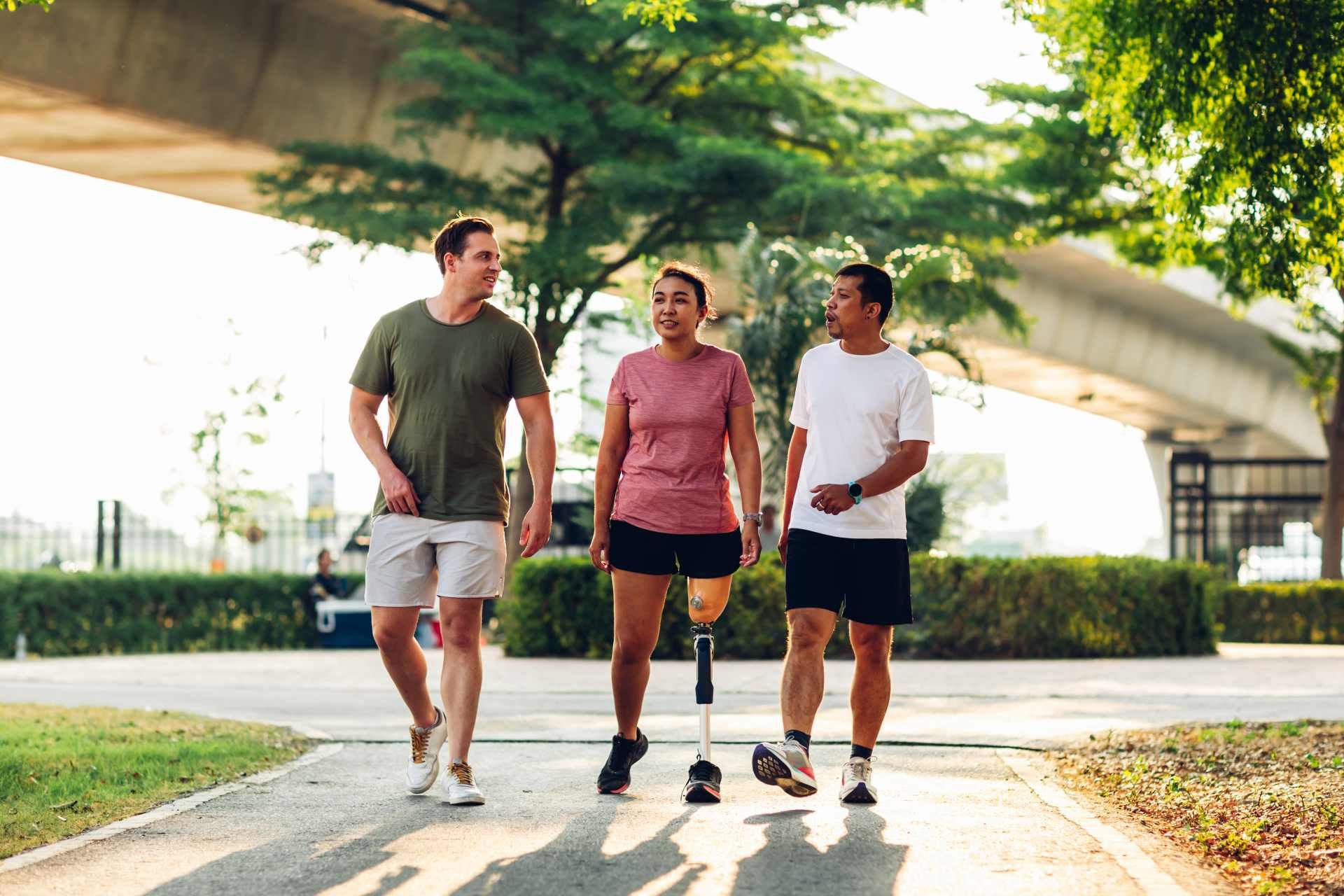If you’re a new prosthetic user looking for information about successfully getting acclimated to and using your new device, we’re here for you. At Kenney Orthopedics, our network of healthcare experts throughout Kentucky, Indiana, and North Carolina can help you navigate the new world of prosthetics. Our practitioners can equip you with practical tips for success, pitfalls to look out for, and what you need to know about long-term usage to help you gain knowledge and confidence working with your new prosthetic device.
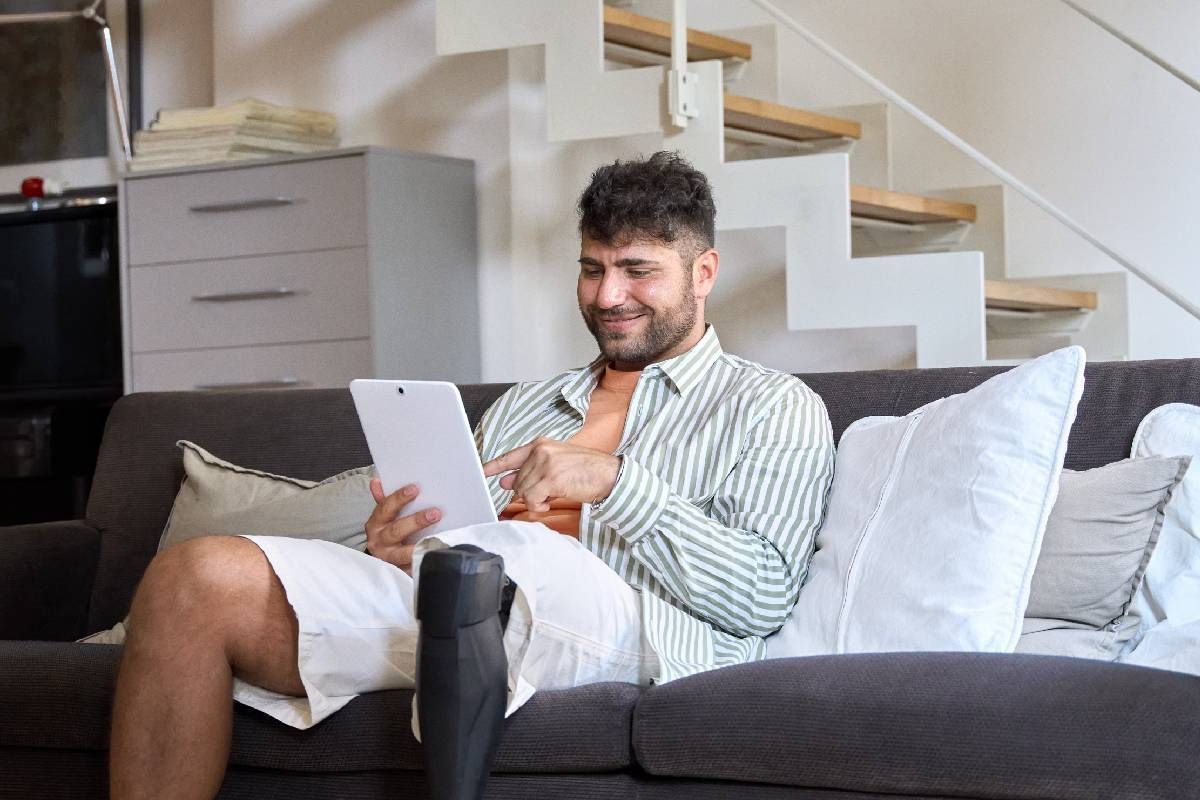
Common Challenges New Prosthetic Users Face
Learning to use a prosthetic device can be a complicated journey at first as your body gets used to the change. As with any change, there can be a series of trial and error when using a new prosthetic device, and issues may arise. The important thing is to seek help immediately if you experience pain or other issues when wearing your new prosthesis.
- Changes to Residual Limb: For the first couple years after amputation, the shape of your residual limb may change. In addition, seasonal weather can also affect the size and shape of your residual limb. For new prosthetic users, these changes can affect the fit and usability of a device, so any changes to how your limb looks or feels is an important matter to discuss on a routine basis with your prosthetist.
- Phantom Limb Pain: Phantom limp pain (PLP) affects up to 80% of amputees. This may present itself as tingling sensations, pain, or burning in the amputated limb. Though there is no clear cause of PLP, new prosthetic users should talk with their healthcare team about pain management and therapies if they experience PLP.
Tips for New Prosthetic Users
If you’re new to using a prosthetic device, the differences in how your body moves and functions can seem overwhelming. Our team at Kenney Orthopedics can help you find your way, starting with these 3 tips for new prosthetic users.
- Wear Your Prosthesis Every Day: Like with anyone experiencing a change in how their body moves or functions, expect an adjustment period where your body and limb become accustomed to the prosthetic device. The more you wear your prosthesis, the easier this acclimation process becomes until it is more comfortable to wear the device for longer periods of time.
- Find Your Community: Connect with the prosthetic community in your area to find support and friendship. There are many ways to find your community including online support groups or in-person peer mentor programs. Kenny Orthopedics offers a peer mentor program that helps bring together experienced prosthetic users and new prosthetic users to share knowledge and grow together.
- Understand Rehabilitation is a Long-term Process: Becoming a proficient user of a prosthetic device does not happen overnight. New prosthetic users must actively work towards their mobility goals. Keep a positive outlook, accept that setbacks will happen, and find ways to motivate yourself every day to continue advancing your prosthetic journey.
Ongoing Care & Maintenance for New Prosthetic Users
Caring for a prosthetic device is an ongoing process that requires maintenance for optimal performance and pain-free use. As with any aspect of prosthetic use, always reach out to your prosthetist with any questions that arise.
- Be Patient and Follow Advice: It's important to follow instructions from your prosthetist and healthcare team. This includes their recommendations for daily use, completing cleaning and maintenance requirements, and keeping all regular appointments.
- Exercise: Exercising regularly can help new prosthetic users become more proficient with their devise by training their body’s muscles to accommodate the prosthesis. Kenney Orthopedics Walking Schools are a great addition to a regular exercise program where new prosthetic users can learn and practice new techniques for using their prosthetic device.
Finding Care for New Prosthetic Users in KY, IN, and NC
If you are a new prosthetic user with questions or concerns, reach out to our team at Kenney Orthopedics for prosthetic and orthotic care.
Kenney Orthopedics has locations throughout the Midwest and South including clinics in Kentucky, Indiana, and North Carolina. Contact us for the answers to your questions about being a new prosthetic user today.


